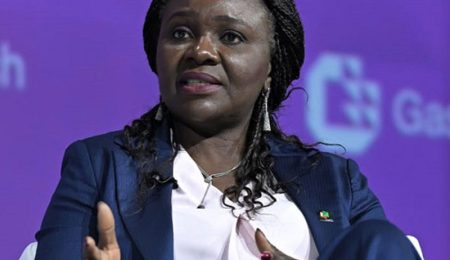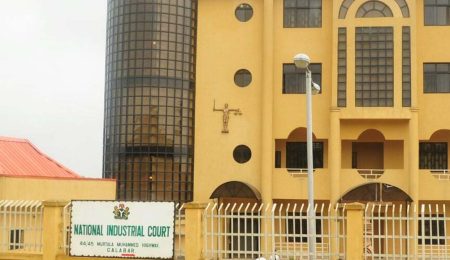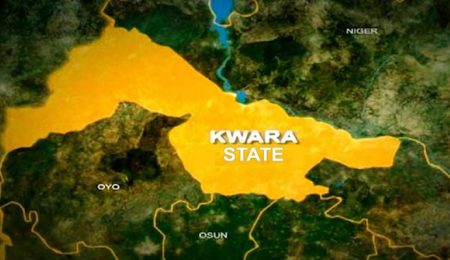The ‘wrongful’ award of compensation against Nigeria over the alleged breach of a contract with Irish firm, Process and Industrial Development (P&ID) has once again dominated public discourse, with a London judge, Robin Knowles, who set aside the award, describing the entire proceedings as “problematic”.
Speaking at the Roebuck Lecture at the Chartered Institute of Arbitrators (CIA), Knowles observed that he struggled to accept what happened, especially when it came to the calculation of damages.
Knowles had in a judgment in Nigeria’s appeal overturned the $11 billion award in favour of P&ID by a London Arbitration in 2017.
Although, a three-member arbitration in 2017 found Nigeria guilty of contract breach and awarded the sum of $6.6 billion in favour of P&ID, the judgment debt accrued to $11 billion, with moves to seize Nigeria’s assets abroad to enforce the judgment debt.
However, following an appeal by Nigeria, Knowles set aside the $11 billion judgment debts on the grounds of fraud and corruption surrounding the contract in the first place, a development that gave much relief to Africa’s most populous nation.
Speaking at the Roebuck lecture, Knowles raised some of the challenges associated with the proceedings and suggested what arbitrations should do in future circumstances. His position was published on July 11, by Chief Correspondent and Editor at Large of Global Arbitration Review, Alison Ross.
The judge reflected more generally on the problems of “vast” claims and awards in international arbitration, highlighting how failures by Nigeria’s lawyers and experts meant potentially valid challenges to the amount of damages sought by P&ID were not raised.
Besides, he said that interest was calculated based on unreal scenarios, noting that the tribunal did not do enough to make up for the incompetence of Nigeria’s legal team and elicit the arguments needed to reach a more suitable figure.
In addition, the judge posited that vast awards lead to major enforcement disputes, encourage more parties to pursue vast claims and prevent access to justice because they act as a barrier to the healthy development of commercial arbitration funding.
He said: “They can make a dispute, where the claim is meritorious, harder to settle because expectations are set high, or can force settlement where the claim is weak because the respondent cannot take the risk of having to pay. They create uncertainty as to the likely outcome of proceedings and have an impact on the reputation of arbitration and user confidence in the process.
“A single vast award can cause harm to a business, its investors and workers or to an entire economy. The original $6.6 billion award in P&ID vs Nigeria was a multiple of the size of the health and education budgets of Nigeria and one quarter of the entire budget for the entire nation.
“It affected not just the government of the day but a community of people, young and old, poor and better off, well and unwell”, the judge pointed out.
He explained that it could be more serious if the regulation in question is “essential” to global efforts to combat modern slavery, pollution or climate change.
“Cases such as P&ID vs Nigeria make us consider whether we can do better than discounted cash flow as a method for calculating prospective losses after the repudiation of a contract”, he added.
The judge in his lengthy discussion of P&ID v Nigeria, focused not on the fraud and corruption in the case that led to his setting aside of the award, but on the approach adopted in the award of damages.
Knowles noted that when the arbitration began, P&ID’s own on-the-record estimate of its loss was $1.992 billion, but that in the end, it was pressing for a figure three times higher.
In approaching damages, he said the majority of the tribunal composed of Lord Hoffmann and Anthony Evans, had reasoned that if the contract had been performed, P&ID would have received an income from the sale of natural gas liquids extracted from the government-supplied wet gas for 20 years.
To achieve that, it would first have had to raise the necessary capital to acquire the site and construct the gas processing facilities. It would also have spent money operating the plant, he reasoned.
“The tribunal went on to hold that P&ID’s loss was the value of “the stream of net profit” the company would have made if the government performed the contract according to its terms, as estimated by experts at the time of the breach, with an appropriate discount for the fact that it would be awarded immediate payment rather than payment over 20 years.
“That approach, and the expert evidence, led the tribunal to the figure of $6.6 billion, eclipsing…the health and education budgets…for 200 million people”, Knowles was quoted to have stated.
Looking at the overall amount awarded, he said it “would and could never have been received” in one go by a party through commercial activities.
Speaking on the competence of witnesses, the judge observed Nigeria’s experts’ ignorance of “the factual evidence in the case”, as set out in statements from P&ID’s founder, Michael Quinn.
“In oral evidence, the expert said there were forecasts available online that contradicted the future policy scenario presented by P&ID’s expert but did not identify the websites or show them to the tribunal. Nor were they put to P&ID’s expert in cross examination.
“In arguments on quantum, Nigeria’s lead counsel relied on points that had not been addressed by its expert or put to P&ID’s expert, such as the cost of security at the processing plant, the performance of employees, yield, sales and future income. He did not appear to understand matters put to him by the tribunal,” Knowles said.
Knowles said that this lack of competence on the part of the Nigerian team meant the majority of the tribunal relied almost entirely on the quantum expert called by P&ID, accepting his estimates of capital expenditure of $579.9 million and operating expenditure of $59.9 million as accurate.
“Respectfully, I did not consider the tribunal did all that it could to find out more, here and elsewhere. When I looked (in the course of the set-aside proceedings) at what was argued and not argued, I struggled to accept what happened in a dispute of this importance and magnitude”, Knowles said.
While accepting that the tribunal was “entitled to rely on the parties’ professional legal representatives to take the points that their clients wished them to take” the judge stressed that the “conduct and effort” of Nigeria’s lawyers at the quantum stage deserved “severe criticism”.
“The difficulty I have is that, although there were expert witnesses on both sides, the tribunal did not have the assistance of competent expert evidence on both sides,” he added.
While acknowledging the difficult job the tribunal faced, Knowles suggested things could have been done differently to ensure the damages awarded were fair and correct, adding that the tribunal could have required Nigeria’s expert to produce a further report after apprising himself of the factual evidence in Quinn’s statement.
Emmanuel Addeh and Alex Enumah
Follow us on:



